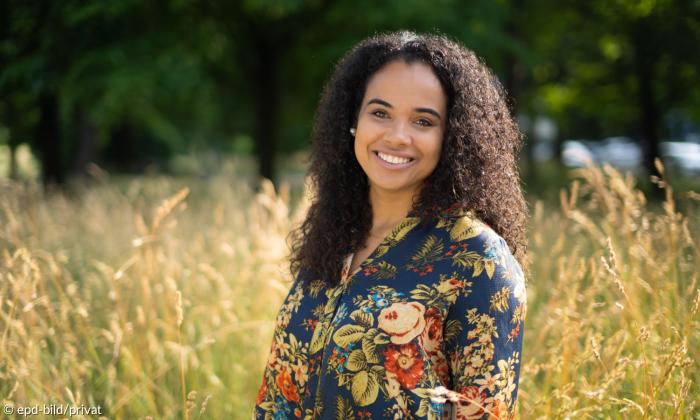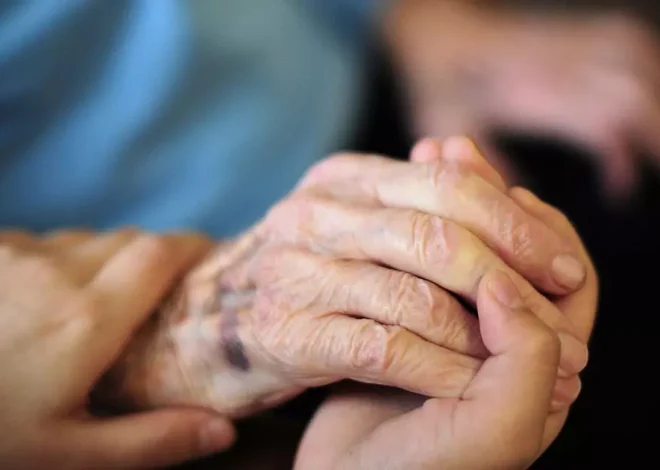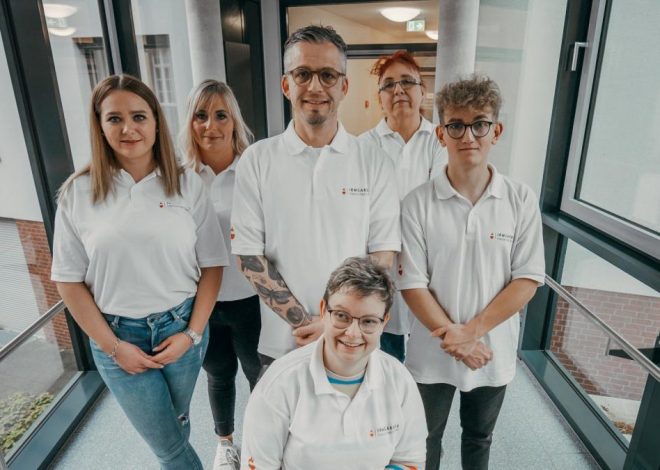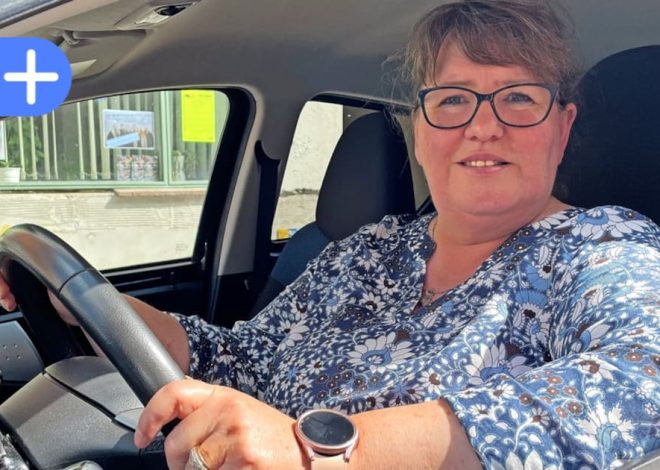
How “Young Carer” aims to support young adults in caring for their relatives
Nadjila Bendig-Behrens knows the situation of young caring relatives from her own experience. In an interview with the Sonntagsblatt newspaper, the 32-year-old health and care manager talks about her personal experiences caring for her sick mother and the goals of the “Young Carer Coach” project run by the “An Deiner Seite – Gerhard und Gertrud Schmieder Stiftung”.
When her mother fell ill with meningitis ten years ago, Bendig-Behrens cared for her for three years until her death. Today, as host of “Young Carer Coach,” she is committed to supporting other young carers. The first action day will take place in Munich on June 6th.
In every school class there are about one or two children with care and nursing responsibilities. How is it that children and young people in particular are caring for and looking after relatives?
Nadjila Bendig-Behrens: For many young people, it is a given that they will support their parents, siblings or distant relatives in an emergency. For example, if a 15 or 16-year-old child suddenly finds out that his mother has cancer, this is an exceptional situation for the whole family. Care is not planned in this case. It is important that in such cases the family builds up a support network and receives support from outside so that the burden is relieved on the children.
What tasks do the children take on as part of the care work?
I prefer to speak of care work rather than pure nursing work here. Often, care is understood to mean only practical personal care. In fact, caring relatives – both adults and children – take on a variety of tasks such as contact with authorities, support with powers of attorney or monitoring the state of health. Such non-nursing activities are also part of everyday care, which can last for years and lead to overload. Caring for those in need of care is not just about pure personal care, but also about holistic support and assistance in all areas of life.
You were 20 years old when your mother suddenly became ill. How did you experience that time?
When my mother became ill, my life changed dramatically. I had just finished school and was on a backpacking trip when I received the news that my mother was in a coma. When she finally woke up, she was suddenly a nursing case. She was in a wheelchair, could hardly remember anything from the past, and her short-term memory was severely impaired. This situation was an enormous challenge for our family. It was hard to see that my mother was no longer the same person. Ultimately, we decided as a family that she should move into a nursing home because 24-hour care was necessary. About three years later, my mother died.
What has changed for you in the three years?
This experience had a profound impact on me and had a decisive influence on my life path. I had big dreams for my life and actually wanted to live somewhere else and abroad for a while. But suddenly I was in a situation where I had to be an adult and make decisions for my mother, sometimes putting my own needs aside.
How did things continue for you professionally during those stressful years?
I decided to train as a nurse so that I could speak competently with nurses and doctors. I then studied health and nursing management to become an expert in this field. I have now been working in nursing advice for five years. I advise working family caregivers and offer them step-by-step support. This is exactly the kind of support I would have wanted in my own situation back then.
How do you look back on your time as a “Young Carer”?
The time I spent as a young caregiver was extremely challenging and often pushed me to my limits. At the same time, I grew a lot and developed into the person I am today. I am also infinitely grateful that my mother woke up after her coma and that we were able to spend three very special years together.
What opportunities and perspectives arise from the role of young caregiver in the long term?
Young carers often gain valuable experience in areas such as empathy and compassion. Since they have to react very sensitively to the needs and possibly non-verbal signals of the person they are caring for, they develop social skills that will benefit them in their future lives. They grow into responsible roles at a young age and therefore learn very early on to communicate independently with authorities and the health system. This strengthens their communication and organizational skills in the long term. They also acquire practical skills such as time management. They often have to coordinate everyday life for the entire family.
Does the role as a young caregiver also influence later career choices?
Often yes. Through their experiences as young carers, the young people gain valuable insights into the topics of health and care. They can use their experience in the care sector, medicine or social work to offer support to others in similar situations. Their role as young carers can, provided the stress was not too great, encourage them to get involved in the future with people in need or in need of support. Through their demanding care work, they acquire valuable skills from which they and society can benefit.
What are the aims of the “Young Carer Coach” project besides making young carers more visible?
A central goal of the project is to raise awareness of the issue and to connect young carers. Often, those affected do not know that they are “young carers”. We inform them about their role as carers and caregivers and give them the feeling that they are not alone by enabling them to exchange ideas with others in the same situation. We share tips and suggestions on social media.
At the same time, it is important to us to make the social environment such as families, but also teachers, doctors and social workers aware of the needs of young carers. The effects of illness on the entire family system are often overlooked. On our action day on June 6 in Munich, we would like to bring together as many relevant actors as possible with the “An Deiner Seite – Gerhard und Gertrud Schmieder Stiftung” in order to raise awareness of this important topic and to better support young carers. But first and foremost we want to get to know our “Young Carers”. That is what I am looking forward to most.

Ethel Purdy – Medical Blogger & Pharmacist
Bridging the world of wellness and science, Ethel Purdy is a professional voice in healthcare with a passion for sharing knowledge. At 36, she stands at the confluence of medical expertise and the written word, holding a pharmacy degree acquired under the rigorous education systems of Germany and Estonia.
Her pursuit of medicine was fueled by a desire to understand the intricacies of human health and to contribute to the community’s understanding of it. Transitioning seamlessly into the realm of blogging, Ethel has found a platform to demystify complex medical concepts for the everyday reader.
Ethel’s commitment to the world of medicine extends beyond her professional life into a personal commitment to health and wellness. Her hobbies reflect this dedication, often involving research on the latest medical advances, participating in wellness communities, and exploring the vast and varied dimensions of health.
Join Ethel as she distills her pharmaceutical knowledge into accessible wisdom, fostering an environment where science meets lifestyle and everyone is invited to learn. Whether you’re looking for insights into the latest health trends or trustworthy medical advice, Ethel’s blog is your gateway to the nexus of healthcare and daily living.



